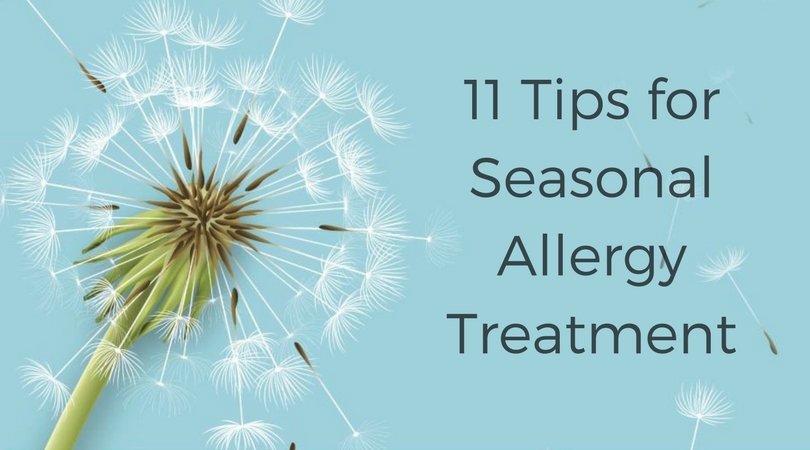Spring is around the corner, which means that allergy season is also about to bloom. Does Your Eczema Flare Up During allergy Season? Is Pollen Making Your Skin Flare-Up? For patients with a mild eczema cases, the warmer weather trigger eczema flare ups and the severe cases may have the itching last round the entire year.These are the few questions which you might have in your mind:
- Can eczema be caused by allergies?
- Do seasonal allergies trigger eczema?
- What causes eczema to flare up in spring season?
 What are the symptoms of spring allergies?
What are the symptoms of spring allergies?
- Hay Fever,
- Sniffing,
- Cold,
- Cough
- Headache
- Shortness of breath
- Wheezing
Sources: https://www.gstatic.com/healthricherkp/pdf/seasonal_allergies.pdf
Spring Allergy Causes
- Pollens
- Pet Dander
- Dust Mites
- Smoke
- Dust
- Molds
- Spores
The eczema occurs when a person comes in a direct contact with the allergens that include pollen, pet dander, dust mites, smoke and many more. Instead of the lungs, eyes and nose being affected some people get harsh, red, itchy and scaly skin rashes on their cheeks, legs, neck and arm.
Approximately 50 million Americans are affected by the chronic skin condition and this itching tends to get worse at the night time, leading to many sleepless, irresistible nights for the patients.
 Does Eczema get Worse in Spring?
Does Eczema get Worse in Spring?
In the Spring time, your skin is exposed to various airborne allergens/irritants such as pollens, spores and molds which in some individuals can lead to histamine release, thus leading to inflammation and dilates blood vessels. This is to be kept in mind that the higher levels of histamine can lead to more reactive skin and may be a cause of eczema triggers or other skin allergies.
There is no doubt that hot weather is a common triggers for eczema and your skin condition can even get worse so as to maintain the environmental changes, air conditioners are used and that can dry your skin. Dry, irritated and harsh skin leads to worsening of spring allergy symptoms and eczema flare ups.
So, it’s perfectly important to update and strictly follow your eczema management plan that can help you cope up with the skin condition and lead a healthy life.
So, what’s the connection between seasonal allergies and eczema?
Allergies are much more than a runny, stuffy nose, and puffy, irritated eyes so do you know that there may be a connection between spring season allergies and longtime eczema? Let’s get to the point and remind you of something that you may have forgot to keep into trail. As per the studies, if you are with a family history of respiratory diseases or outdoor allergens then you are most likely to develop eczema.
This may be noted if someone is allergic to pollen, molds, dust or spores then they might itch a lot when there is a high pollen count during the season.
Don’t let this springtime eczema outbreaks or seasonal allergy causes ruin all your spring fun! For many people living with this chronic skin condition eczema, the late spring and early summer season can be a challenging time so listed below are 11 simple outdoor allergens treatment tips that can help you cut back on the allergic responses during the springtime:
 11 Tips for Seasonal Allergyies Treatment
11 Tips for Seasonal Allergyies Treatment
1.Keep your garden clean:
Your worst nightmare (eczema) could be planted just outside your home. Take stock of your plants and try identifying them and if you are unable to do so please take a clipping to a nursery for help to identify gender. Allergy-friendly plants include roses, poppies, foxglove, peonies and more.
2. Stay inside when its too windy:
It’s a good idea to stay inside when the wind is blowing as wind often carries pollen, spores, and mold. This may be kept in mind that a small spring breeze is okay but other than that it may be dangerous.
3.Go for allergy-blockers/antihistamines:
As per the allergists applying antihistamines or allergy blockers during the springtime can help you or your child get rid of the condition.
4.Low allergen diet:
Go for the low allergen, gluten free diet during the springtime as that can prove to be one of the beneficial components to help you manage the skin condition.
5.Keep track of a proper time:
Keep track of the weather conditions. Always avoid the hottest part of the day and use sunblock lotion to keep you and your child away from the scorching sun. Try staying cool by taking showers or going for some water activity. Don’t let your condition spoil your weekend fun.
6.Loose fabrics:
Opt for the loose-fitted, cotton clothing that will help to get rid of skin rashes and doesn’t tend to irritate the skin.
7.Moisturize:
Don’t forget to moisturize your skin within regular intervals of time. Try to moisturize as much as possible.
8.Shower every night:
Wash all the pollens out of your child’s skin and hair before they could spread it all over in the house, pillowcases and bed linens.
9.Clean your bed and mattresses:
Is your allergy becoming worse at night? It’s high time now to get rid of the pollen and dust mites in your bedding. Dry your bedding or the mattresses to get rid of the allergens and also get an anti-allergy mattress cover.
10.Use of Vacuum cleaners:
Sweeping the floors usually tend to mix up all the allergens and this can take several hours to settle again. So, try to invest in a good vacuum cleaner with a HEPA filter and go vacuum your floors.
11.Give your fluffy a bath:
Pet dander is a major allergy trigger so give your dogs and cats a bath as they can easily track pollen and dander all over the house.
Your dermatologist have many more tips and tricks to tame these allergies right away that may include medical prescriptions and healthy living lifestyle. Following proper skincare routines and following a strict eczema-friendly diet can perfectly help you heal the seasonal allergy symptoms and let you live a wonderful life.
More Related Sources
- https://acaai.org/allergies/seasonal-allergies
- https://medlineplus.gov/magazine/issues/spring13/articles/spring13pg22-23.html







